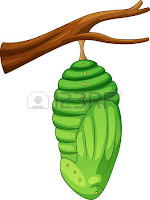Desmond L Kharmawphlang is a poet
and folklorist. He has published books of poetry and collections of theoretical
essays on folkloristics pertaining to North East India. He is on the Executive
Board of the Belief Narrative Network of the International Society for Folk
Narrative Research and is the Vice President of the Indian Folklore Congress.
He lives in Shillong, Meghalaya where he is Professor and Head at the
Department of Cultural and Creative Studies of the North-Eastern Hill
University, where he teaches folkloristics.
In the poem “Last night I dreamed”
the poet, folklorist Desmond. L. Kharmawphlang delineates the poetic tradition
of North-East literature. The history and evolution of north-east poetic
tradition is explained by the poet. As a folklorist, Desmond attempts to give
the chronology of events which maketh the evolution possible. The evolution of
north-east literature from oral tradition to written is described in an emblematic
way which makes the poem intricate to comprehend. The dream can also be taken
as a journey which represents the process of development.
 The poem begins with the line “Last
night I dreamed” which indicates narrator’s subjective narration which
is centred on his/her development. Assuming the narrator as ‘north-east poetic
tradition’ and the development as the evolution of the tradition yield to new disentangled
meaning. The presupposition, ‘the poem as the speaker’, unravels the
complication. The narrator articulates that s/he dreams that s/he was a sperm
in the womb of folklore which designates the beginning phase of the development.
Comparing the beginning of the tradition with biological development makes
sense. And the word “sperm” denotes the yet to develop stage of the poetry.
The poem begins with the line “Last
night I dreamed” which indicates narrator’s subjective narration which
is centred on his/her development. Assuming the narrator as ‘north-east poetic
tradition’ and the development as the evolution of the tradition yield to new disentangled
meaning. The presupposition, ‘the poem as the speaker’, unravels the
complication. The narrator articulates that s/he dreams that s/he was a sperm
in the womb of folklore which designates the beginning phase of the development.
Comparing the beginning of the tradition with biological development makes
sense. And the word “sperm” denotes the yet to develop stage of the poetry.
The second stanza reveals that the
oral stage where s/he is born as a mere idea born into a naked nation, which infers
the crude, undeveloped form of the oral poetry. It further more indicates the
stage in which the poetry is needed to be shaped. The phrases “to be forged in
fire” and “Deft fingers plucked me” discloses the shaping process which helped
the development of the form. The phrase “crawled on all fours” compares the
poetry with the new born child which is yet to grow. Thus in the first three
stanzas, the poet explains the beginning stage of poetic tradition.
 The fourth stanza gives an image
which is figurative. The poetry “winters into a silken Cocoon” later it is spun
into thread in looms, which can be taken as a process which makes something out
of nothing. The analogy of becoming thread from cocoon exactly describes the development
of tradition. Finally the as the poet suggests It becomes folktale. As a
professor of Cultural studies and folklore, the poet reveals his intention to
safeguard the tradition.8
The fourth stanza gives an image
which is figurative. The poetry “winters into a silken Cocoon” later it is spun
into thread in looms, which can be taken as a process which makes something out
of nothing. The analogy of becoming thread from cocoon exactly describes the development
of tradition. Finally the as the poet suggests It becomes folktale. As a
professor of Cultural studies and folklore, the poet reveals his intention to
safeguard the tradition.8
The line, “Deft fingers plucked
me and grafted my flesh on the tongue of experience” denotes the writers who
shaped the form with their experience. The history is outlined as the poetry
becomes proverb and later riddle. The evolution from folktale to proverb and
from proverb to riddle makes the clear chain of events which can be interpreted
as the history of poetic tradition. The oral poetry tends to be in the womb of
poetry in the next birth.

lucid analysis of the developmet of north east poetic tradition.
ReplyDeletethank you, Abu :)
Delete